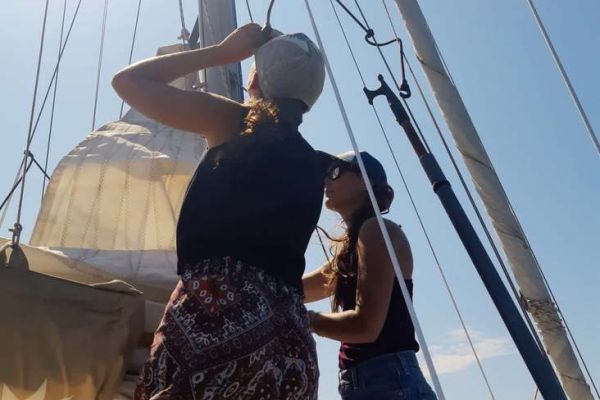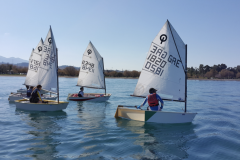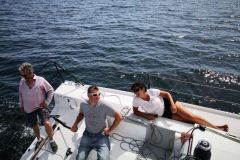Read, read and reread (and watch videos)
Many sailors have learned to sail on their own, and many people have chosen to share their knowledge through books or videos. So, everything you need to know about theory can be found in a book, or online. One example is the famous Glénans book, which remains a benchmark. If you have no notion of the world of sailing, reading books and browsing sites like ours will help you a lot and save you a lot of time. Turn in the sheet! Hoist the mainsail! Take in the wind and sail close-hauled! If you know the terms and learn some of the theory, you'll never know EVERYTHING, but you'll make rapid progress.
What's more, sailing involves a great deal of knowledge that goes beyond pure navigation. You need to know about electricity, plumbing, mechanics and many other areas, because as the saying goes, "a good sailor knows how to do everything badly". Problems on a sailboat are cyclical and often recur from one owner to the next. So why not get feedback from those who've been there before you?
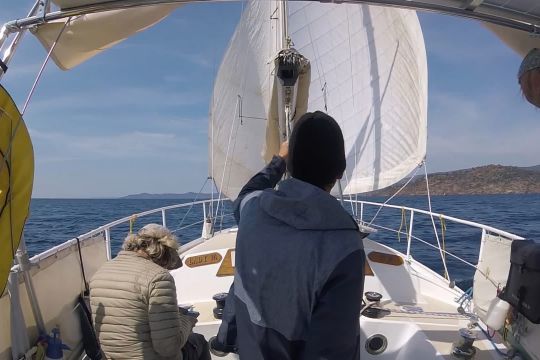
Sailing courses
You know the theory? Now it's time to put it into practice! Sailing courses are ideal for beginners. Municipal sailing clubs offer affordable light sailing courses. So maybe your dream is to sail around the world in a houseboat, and you don't want to waste time on light sailing? Believe us, a liveaboard sailboat is nothing more than a small sailboat, only bigger. By learning the ropes on small sailboats, you'll learn the basics and reflexes you'll need for your new sailing CV. What's more, light sailing will familiarize you with the wind, the waves, the priorities... You'll get a feel for it, and meet some great people. Of course, there are courses of all types: liveaboard, offshore, catamaran... and you'll be able to progress according to your level.
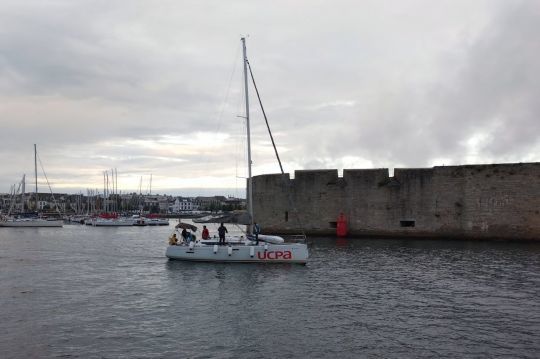
Buy an Optimist and work on it
Do you live by a lake, the sea or the ocean and want to learn all by yourself? Why not? Buying an Optimist or a small trailer-mounted dinghy won't cost you much, and you can have as much fun as you like. Just make sure you find out beforehand about the dangers and things you need to know, and don't take any unnecessary risks - you need to remain humble in the face of the sea and bodies of water. This can be an interesting option, as you'll already be wearing the "captain's hat", with its advantages and disadvantages: you'll have to repair and maintain your vessel, but in return you'll be able to use and enjoy it as much as you like.
Convoying and boating others
Have you got the time? Embarking on a private or professional boat can be a very good idea. This option is highly instructive, especially if the captain is patient enough to explain things to you.
Every year, thousands of people take to the water, and there's always room for a beginner - you just have to find it. There are websites, word of mouth, classified ads... multiply your chances and you'll find your new captain ready to take you on board. Generally speaking, a first experience of sailing, even light sailing, is welcome. This experience will prove your motivation and ensure that you know the lingo, so that you can be effective on your new captain's deck.
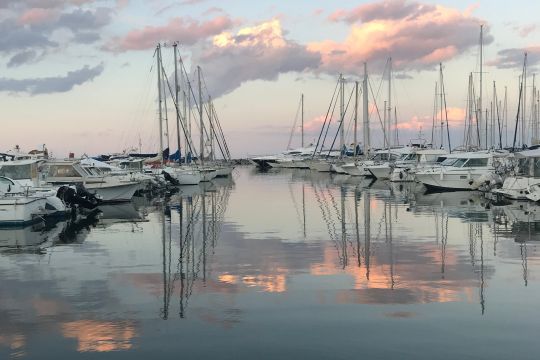
Buying a boat and sailing
There's still a slightly more radical solution: buy your own sailboat and set off without knowing much about it. This solution can be very economical, if your boat is in good condition. But how do you know if your boat is good, if you don't know anything about it? If you opt for this option, make sure you have the right people around you to advise you, so that your dream of learning to sail doesn't turn into an apprenticeship in the yard.
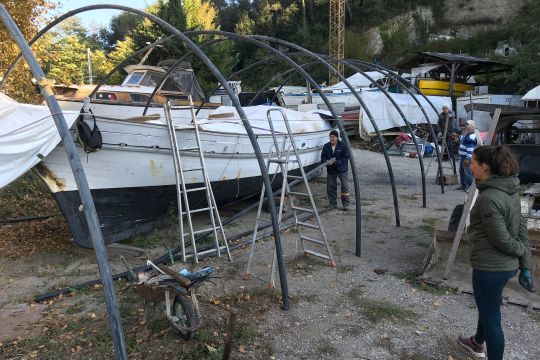
Ultimately, learning to sail is within everyone's grasp, and can be started right away via books, videos and other media. After that, starting small can be a very interesting way of familiarizing yourself with the environment. And once you've mastered the theory and practice, all you have to do is... cast off.
